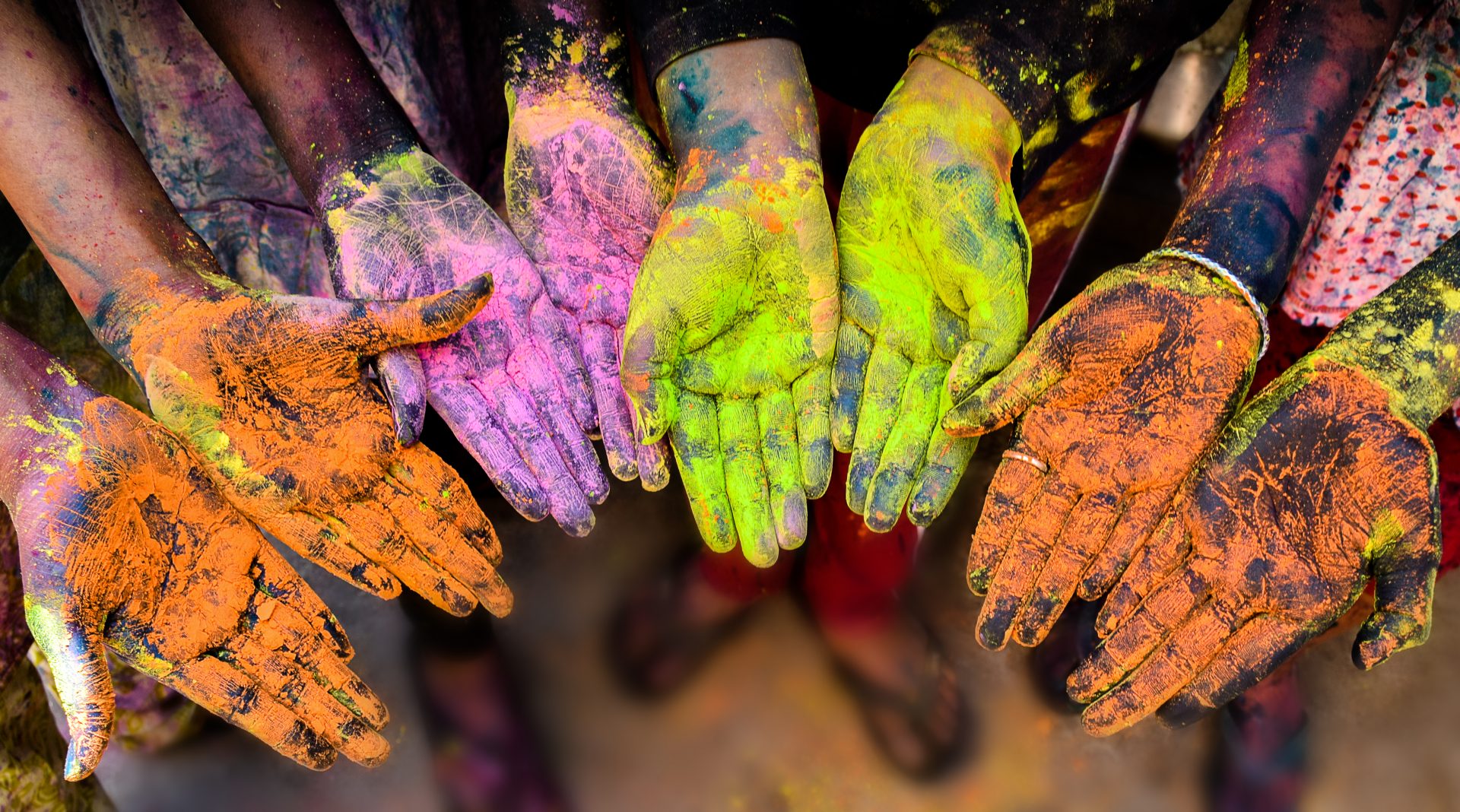In some African communities, during the harsh dry season when food becomes scarce and mothers can no longer feed all their children, a tragic custom persists: some children are left in open-air enclosures to die of starvation.
From our perspective, this is nothing short of premeditated murder—an unthinkable act of infanticide, a mark of profound dehumanisation. But how do things look from the perspective of these mothers? Given the extreme living conditions—so long-standing that they have given rise to this cruel and heartbreaking tradition—can they really choose otherwise? Could we, in their place?
At the beginning of the 20th century, cultural anthropology began to take shape in the United States as a field science dedicated to exploring human diversity around the globe. Its founder, Franz Boas[1], established cultural relativism as a guiding principle: the idea that cultural phenomena should be studied and understood within the context of the values, norms, and ideals of the societies in which they arise.
Thus, it was believed that the old bias that had burdened earlier explorations—namely, ethnocentrism—had finally been dismantled: the tendency to place Western culture at the center and use it as the standard by which to judge the norms, values, ideals, and behaviours of those outside it, no matter how different or distant they were.
Cultural relativism and its benefits
Cultural relativism brought significant benefits, enriching the field of anthropology and offering the global community a deeper understanding of human cultures. It opened a window into the richly varied lives of people in places like Samoa, Bali, the Ural Mountains, the Amazon jungle, Papua New Guinea, Sudan, Indonesia, the Philippines, Hawaii, Morocco, and Australia.
Previously unknown tribal names and ethnic groups entered Western—both European and American—awareness, along with their customs, rituals, artifacts, and belief systems: the Papuans, Bantu, Kwakiutl, Zulus, Nuer, Bushmen, Pueblos, Tuaregs, and many more.
The philosophical concern with human nature, the reflective effort of human beings to know themselves, had existed for centuries, even millennia. But now, at last, there emerged a concrete, non-speculative opportunity to move closer to an answer—through the broadening of our perspective on human diversity[2] across time and space. After all, anthropology, as the science of humankind, is essentially a process of self-discovery—one that returns to the self, enriched by a “journey around the Earth.”
One of the most significant gains for global culture has been the embrace of multiculturalism—the recognition, appreciation, promotion, and preservation of the world’s many different traditions. In some cases, these cultures have even offered “lessons” to humanity that surpass the moral benchmarks of modern civilisation.
One such example is the lesson in compassion for domestic animals offered by the Nuer people, who live along the banks of the Nile. They sacrifice their cattle for food only when no other source of nourishment can be found, making full use of the animal for the entire tribe. And before the sacrifice, they speak to the animal: they express sorrow for the act, explain the need to avoid starvation, and ask for forgiveness.
As some thinkers have noted[3], cultural relativism dethroned the self-sufficiency of “advanced” civilisations and the arrogant gaze cast on the “uncivilised.” It exposed the fact that certain standards and values we considered superior and self-evident—simply because they were our own—are, in reality, temporary, localised expressions of social norms that can look very different in other cultural contexts. For example, if the average Western or Eastern European defines a satisfactory life by owning a luxury car and a house with a swimming pool, this does not mean such a standard can—or should—be universally applied to the entire planet. In other cultures, these things may be entirely irrelevant—not merely due to a lack of economic development, but because people hold fundamentally different views of life and well-being.
Such contrasts are also highlighted by the well-known leadership expert and author Robin Sharma, a Canadian of Pakistani descent, who has published several inspirational books. Some bear striking titles, such as the parable-based The Monk Who Sold His Ferrari.[4]
American anthropologist Clifford Geertz compiled a list of revelations that field research had offered the so-called civilised world—insights that simultaneously challenged long-standing truths. His list included[5]: political order is possible without centralised power; justice based on principles can function without codified laws; the world is not divided strictly into the devout and the superstitious; there is sculpture in the jungle and painting in the desert; the rules of reason were not first formulated in ancient Greece; and moral progress did not reach its final stage in England.
The dangers of moral relativism
While cultural relativism has proven beneficial in anthropology—serving as a methodological principle that allows field researchers to empathise as deeply as possible with the subjects they study—the emergence of moral relativism carries far more troubling implications. Moral relativism tends to dissolve all standards and values, asserting that there are no universally valid human principles, and that everything must be evaluated strictly within its local context. The phrase that encapsulates this idea is “anything goes.” This expression may echo Heraclitus’s ancient notion panta rhei (“everything flows”) but here it also takes on the more permissive connotation of “everything is acceptable.”
As several thinkers[6] have pointed out, accepting relativism in the moral realm can have serious consequences for the social, political, and overall civic life of a community or society—particularly when it contains minorities that assert specific moral or behavioural norms but do not act as minorities, rejecting the norms of the majority. Moral relativism teaches that there is no shared foundation on which to evaluate opposing views on ethical decisions or behaviours; instead, every viewpoint is deemed valid within its own context.
Thus, the landscape of relativism has shifted—from something observed at the safe distance of different continents, nations, and legal systems, where cultural influence flowed in one direction (from the West to other parts of the world, often former colonies). At the level of acculturation—that is, the increasingly intense and widespread interaction between different cultures—conflicts in coexistence begin to emerge.
The idealised openness toward other systems of values and norms—welcoming them under the banner of multiculturalism—quickly becomes problematic when those who hold these values live among us and refuse to adapt to ours. They do not follow the European maxim: “When in Rome, do as the Romans do.” That is our cultural principle—not theirs. It’s as if someone were invited into your home, and after a while, began changing the house rules, altering its structure and décor, and carving out their own space—without the consent of the host or their family.
Are we truly unable to apply any criteria that would help us decide who is right and who is not, regardless of cultural context?
Even several years ago—before the current, unprecedented wave of immigration—Britain’s prime minister had already emphasised that multiculturalism was becoming increasingly difficult to defend as a value, as it appeared to encourage Islamic extremism. Surprisingly, as we might see it today, it was also noted that Angela Merkel and Nicolas Sarkozy had made similar comments.[7]
Under what conditions does the future look bright?
Given the current relativist turn in our civilisation, we’re left asking: are there truly no universally valid principles for humanity? Is it really impossible to distinguish between truth and falsehood because everything is said to depend on context? For instance, if Australian Aboriginals believe the Earth is flat while we believe it is spherical, does that mean there are two truths on the matter?
The role of morality is to regulate peaceful coexistence within a community. It helps us discern fundamental values of good and evil, guiding us to choose what is right through established criteria, rules, and principles—ultimately preserving balance in community life.
Of course, there are context-specific moral systems, but this does not mean that we cannot extract from them principles with broader relevance; for example: that killing another person is wrong; that lying is wrong; that stealing is wrong. These are basic tenets of Christian morality. This moral framework has underpinned our present civilisation, and the rise of moral relativism not only threatens that foundation, it risks eliminating any foundation at all if, indeed, “everything flows.”
Romanian philosopher Andrei Marga warned: “Relativism always very quickly converts into a dogma that contradicts its own principle and leads to a serious consequence: the destruction of the principle of the unity of the human species, with all the ethical, political, and social implications that follow.”[8]
If all immutable principles of the human species were to vanish, then truly anything could become possible—even its extinction through the “implosion” of its own context-dependent rules and values, which we might all be expected to accept, regardless of whether they seem tolerable to us, so long as they are embraced by others within a given community. And this, all in the name of a new guiding tenet: political correctness.
Even long-standing taboos, such as incest, or deeply rooted norms protecting minors, could disappear. The shifting of moral norms inevitably paves the way for changes in legal norms as well.
The British moral philosopher Bernard Williams wrote: “But it would be a particular moral view, and one both psychologically and morally implausible, to insist that these adaptive reactions were the only correct ones, that confronted with practices which are found and felt as inhuman, for instance, there is an a priori demand of acceptance.”[9]
Williams argues that human beings have the capacity to feel and judge, deep within, that certain practices are inhumane—regardless of the relativist logic or the postmodern easing of values.
The internal contradiction of moral relativism lies in the fact that while it denies the existence of any universally valid principles that apply to all people at all times, it ends up introducing a new one. As Dumitru Borţun[10] has pointed out, political correctness has become not only a principle but an intellectual trend and ideology in the United States. In its name, minorities of all types are granted increasingly broad freedoms through what is called “positive discrimination.” One example is the appointment of individuals from sexual, gender, or racial minorities to leadership roles, sometimes bypassing the criterion of competence.
The consequences can become grotesque—or even dangerous—if the rights and freedoms of all minorities, without distinction, continue to expand unchecked. One grim scenario: the emergence of a pedophile community campaigning for their rights and freedoms.
Finally, I would highlight another inconsistency in the principle of political correctness—one that makes it unworkable as a dominant moral framework. By expanding the sphere of freedom for minority groups, it ultimately violates a truly foundational rule that has underpinned democratic Western society for centuries: the golden rule, which holds that one’s freedom ends where another’s begins.
In my view, if these waves of relativism continue to grow and result in a true tyranny of minorities, the future itself could become an illusion. But if society returns to the “strong codes” of its founding morality—namely, Christian morality—then the future will not only remain possible, but it may indeed be promising.
















